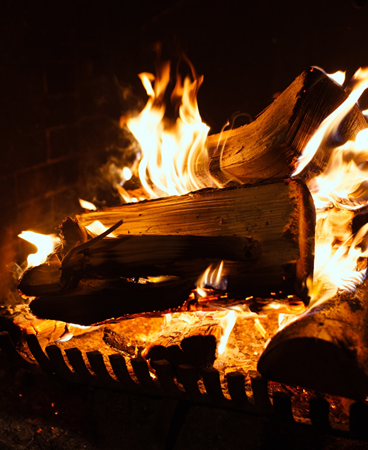Tips & Advice
Chimneys
Always use a fire guard to protect against flying sparks from hot embers.
Make sure embers are properly put out before you go to bed or leaving the house.
When burning wood, use dry, seasoned woods only.
Never burn cardboard, waste paper & do not overload the grate.
Bird nests, cobwebs and other blockages within chimney to be removed.
Consider having a carbon monoxide detector fitted as an additional safeguard against the build-up of poisonous fumes.
Have a working smoke alarm.
Your Alarms
Regularly check your alarms by pressing the button.
Once a year – change your battery or consider buying a ten-year alarm which will not require frequent battery changes.
Once a year – vacuum and wipe the smoke alarm casing to ensure dust isn’t blocking the sensor chamber (for mains wired alarms, switch off first).
All chimneys must be properly maintained. Failing to sweep a chimney will not only reduce your fire’s vital air flow, but it could also result in potentially dangerous carbon monoxide fumes! failing to sweep your chimney could possibly void your home insurance policy.

